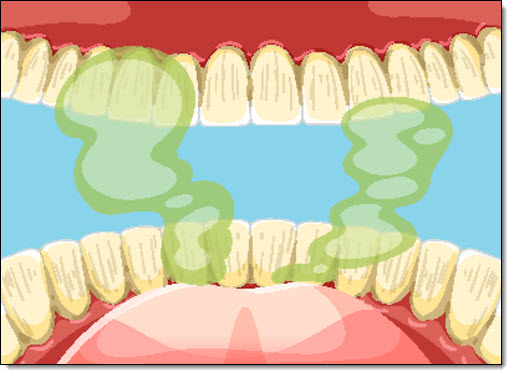Parents often notice occasional bad breath in children, usually after meals or in the morning. While this is normal, persistent halitosis may signal deeper concerns. Identifying the difference between harmless odor and signs of underlying problems helps parents protect their child’s oral and overall health. Early recognition and intervention ensure fresher breath and prevent complications.
Common Causes of Bad Breath in Kids
Most cases stem from poor oral hygiene. Children often miss areas while brushing or avoid flossing, leaving bacteria and food particles behind. Dry mouth, caused by dehydration or mouth breathing, also worsens odor. Certain foods, like dairy and garlic, contribute temporarily. These everyday causes usually resolve with improved hygiene and hydration. Parents can encourage brushing for two minutes and using fun flossing tools to improve consistency.
When Bad Breath Signals a Problem
 Persistent odor may point to gum disease, cavities, or tonsil infections. Inflamed gums release foul-smelling compounds, while untreated cavities harbor bacteria. Enlarged tonsils can trap debris, creating tonsil stones that produce strong odors. In rare cases, sinus infections or digestive issues contribute. Parents should consult a dentist if bad breath continues despite good hygiene and hydration.
Persistent odor may point to gum disease, cavities, or tonsil infections. Inflamed gums release foul-smelling compounds, while untreated cavities harbor bacteria. Enlarged tonsils can trap debris, creating tonsil stones that produce strong odors. In rare cases, sinus infections or digestive issues contribute. Parents should consult a dentist if bad breath continues despite good hygiene and hydration.
Supporting Children’s Oral Hygiene
Supervision plays a key role. Young children often lack the skill or patience for thorough cleaning. Parents should monitor brushing until children can manage independently, usually around age 7 or 8. Encouraging tongue cleaning and using child-friendly mouth rinses can also help. Making hygiene a fun routine with songs or rewards increases compliance and improves outcomes.
Professional Care and Evaluation
Dentists evaluate children for gum disease, cavities, or structural issues. If needed, they may refer patients to pediatricians or ENT specialists for non-oral causes. Professional cleanings remove plaque children cannot reach at home, significantly improving breath. Regular checkups also prevent small issues from escalating into bigger problems.
Bad breath in children is often temporary, but persistent cases deserve attention. With consistent oral hygiene, parental support, and professional guidance, most children enjoy fresh breath and healthier smiles. Parents who act early ensure both confidence and long-term dental health.




